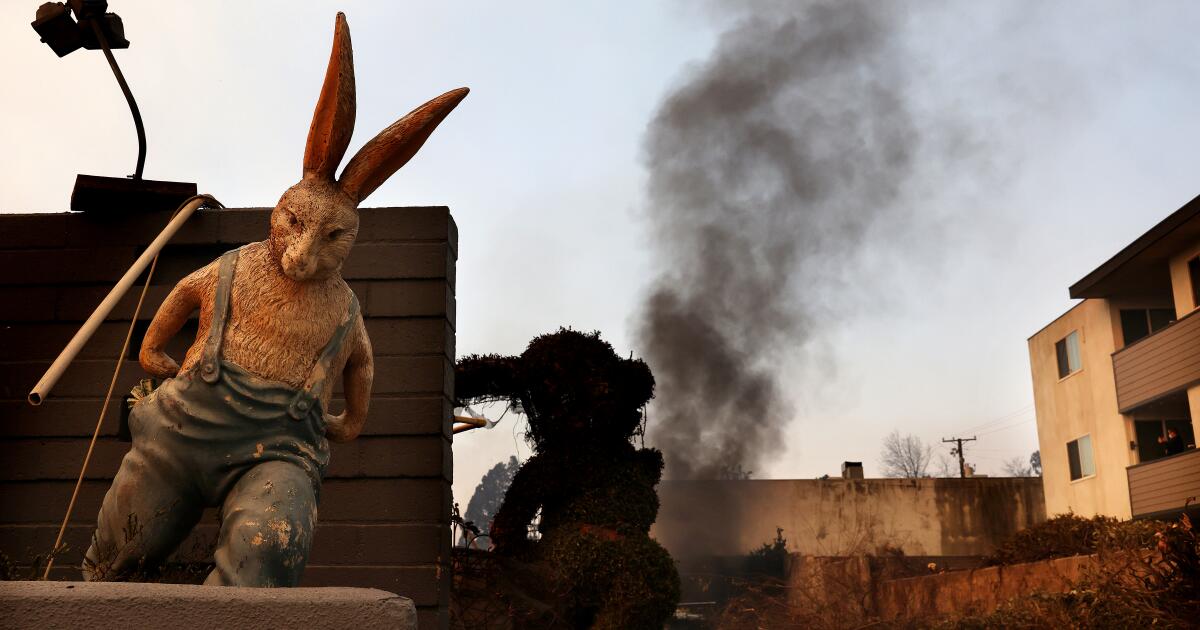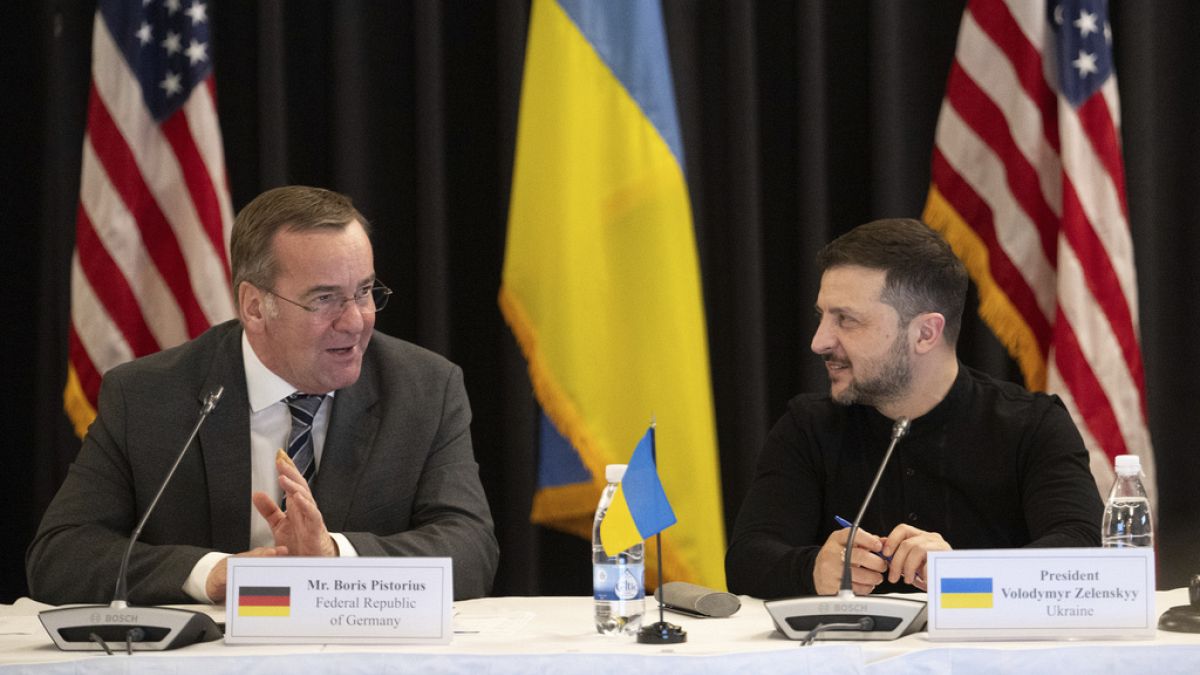Education
Opinion | The Case Against Student Debt Relief Barely Even Pretends to Make Sense

The Biden administration’s plan to cancel up to $20,000 of debt for tens of millions of Americans has faced endless pressure. Just this week the House of Representatives voted to repeal it. But the suit against it, brought by six Republican-led states, has received much less scrutiny. That’s because the Supreme Court issued “certiorari before judgment,” meaning the suit did not first have to wend its way through lower courts. Its factual claims haven’t been adequately tested. They’ve hardly even been aired.
So we decided to do the fact-checking ourselves. We filed public records requests and reviewed almost a thousand pages of internal financial documents, emails and other communications from the parties in the case, as well as court filings and the transcript of oral arguments at the Supreme Court in February.
We found that the states’ most fundamental justification for bringing the case — that canceling student loans could leave a Missouri-based loan authority unable to meet its financial obligations to the state — is false. As our research shows, and the loan authority’s own documents confirm, even with the new policy in place, its revenues from servicing loans will increase.
According to the rules of American jurisprudence, if there is no injury, there is no right to sue. It’s called standing, and the plaintiffs don’t have it. They simply said they did. That assertion has been enough to get them to the nation’s highest court, and may help persuade the justices to rule in their favor.
The ease with which the state attorneys general were able to make claims that contradict basic facts, void of any rigorous stress testing, is all the more striking when compared with the endless hoops that ordinary people have to jump through to prove their eligibility for financial aid or debt relief. This is what the sociologist Howard Becker calls the “hierarchy of credibility”: Those at the top of the social hierarchy don’t have to prove their claims; they’re just taken for granted. But claims made by those on the bottom are burdened by skepticism and demands for proof. In this instance, that difference may deprive millions of people of much-needed relief.
The loan agency at the center of this case is the Missouri Higher Education Loan Authority. The plaintiffs claim that President Biden’s policy will cost the quasi-independent agency, known as MOHELA, “millions of dollars of revenue per year,” which could in turn prevent it from meeting its financial obligations to a state education fund. How would this happen? The plaintiffs are pretty vague about it.
“Nearly half” of student loans will be discharged under the Biden program, Nebraska’s solicitor general, James Campbell, told the court. “So it stands to reason that about half of MOHELA’s operating revenue from direct loans will be cut and overall that amounts to about 40 percent of its operating revenue.”
We’ve read all the evidence the plaintiffs submitted to back up that claim — and it does not, in fact, stand to reason. They offered a transcript from a Biden administration news conference and materials explaining the loan discharge process, but little about MOHELA’s finances or the impact of this policy on its bottom line.
As it turns out, MOHELA had been running these analyses regularly in the run-up to, and then immediately after, the announcement of the loan-forgiveness program. Wiping away all those loans would of course mean a hit to one source of MOHELA’s revenue. But that’s not the end of the story.
Our public records request revealed that overall, MOHELA will still have a banner year. Last August, the agency projected that even after the policy went into effect, it would make $97.2 million from servicing federal direct student loans — well over the $88.9 million it made in its previous fiscal year.
That’s because while it would be closing out some accounts, the loss would be more than offset by an infusion of new borrowers. Last July, the Department of Education gave a contract to the agency (despite its apparently terrible record) to service a huge number of new accounts related to a different loan program. This continues a recent trend: Overall, MOHELA’s direct loan borrowers have more than tripled from 2.5 million in 2020 to 7.7 million as of April.
MOHELA wouldn’t talk to us about any of this, so to double-check its projection we ran our own, using data from the documents we received from our records request as well as publicly available government records. (Some of this research was first made public through the Roosevelt Institute.) Based on that information, a conservative estimate is that the agency’s annual revenue from direct loan servicing would nearly double to $175.6 million even if the loan cancellation policy kicks in. And it could make additional money from processing fees as it closes out accounts.
The case before the Supreme Court has already attracted criticism — even from conservative legal experts who have no love for the Biden administration’s policy. Through tortured logic, the State of Missouri has declared itself the injured party even though it’s the loan servicing company, a separate entity, that would lose revenue. Missouri claimed it would be a secondary victim, since the loan authority owes the state $105 million.
But think about that. If Amazon lays off my friend, and my friend owes me $20, can I sue Amazon for making it harder for me to get my money back?
Of course not. In this case, however, the point should be moot, because recent financial statements revealed MOHELA had not made those payments for the past 15 years, and does not appear to have plans to resume them.
Consider the plaintiffs’ reaction to a question that Justice Ketanji Brown Jackson asked about the extent to which MOHELA might be harmed under the debt relief policy, given that it will receive fees for discharging accounts. “It’s very hard to believe,” said Mr. Campbell, the Nebraska solicitor general, “and the government doesn’t offer any details in its reply brief, that a one-time payment of fees for discharging loans will offset the ongoing fee that MOHELA earns from servicing those loans.”
Justice Jackson responded with apparent incredulity. “But isn’t that your burden?” she asked. “You are bringing this lawsuit and you have to establish standing. And so to the extent we’re trying to assess whether or not MOHELA is actually going to be injured, I don’t think you can answer ‘but the government hasn’t said something.’”
Even now, the loan agency would not answer our questions or discuss our research, despite written requests and phone call inquiries. The Missouri attorney general’s office told The Times, “To establish standing, MOHELA had to prove only that they would have less money.” But whether MOHELA has standing is irrelevant; the loan agency is not a party to the suit.
Compare that with the lengths that normal people must go to in order to prove they are eligible for debt relief. They have to submit mountains of documentation. Their claims are often denied for the most trivial of technicalities — a form filled out with green ink instead of black or blue, an electronic signature instead of an inked one.
Applicants for the older Public Service Loan Forgiveness program have to get paperwork signed from employers they had a decade ago. If a loan servicer transfers the account, the borrower may lose her payment history, and therefore her eligibility for relief. People who attended predatory for-profit colleges have had to submit extensive applications for relief, documenting their schools’ false allegations and misrepresentations. Even the Biden plan required an application.
That’s the “hierarchy of credibility.” Missouri says that the loan forgiveness policy could hamper MOHELA’s ability to repay its debts to the state. Missouri then filed a lawsuit — not against the agency, but on its behalf, to try to shore up its future revenues. How would the state act if an individual debtor said she couldn’t make her payments?
Should the justices affirm this claim, they would effectively be confirming a fake plaintiff, false facts and an unjust claim. Falsehoods about falsehoods would be a hard way to lose the debt relief the president promised to 43 million Americans and their families. And a Supreme Court that doesn’t scrutinize basic facts would be a further disgrace for a body already plagued by scandal.
Eleni Schirmer, a writer and postdoctoral fellow at the Concordia University Social Justice Center in Montreal, is an organizer for the Debt Collective. Louise Seamster is an assistant professor of sociology and African American studies at the University of Iowa, and a nonresident fellow in governance studies at the Brookings Institution.
The Times is committed to publishing a diversity of letters to the editor. We’d like to hear what you think about this or any of our articles. Here are some tips. And here’s our email: letters@nytimes.com.
Follow The New York Times Opinion section on Facebook, Twitter (@NYTopinion) and Instagram.

Education
Four Fraternity Members Charged After a Pledge Is Set on Fire

Four fraternity members at San Diego State University are facing felony charges after a pledge was set on fire during a skit at a party last year, leaving him hospitalized for weeks with third-degree burns, prosecutors said Monday.
The fire happened on Feb. 17, 2024, when the Phi Kappa Psi fraternity held a large party at its house, despite being on probation, court documents show. While under probation, the fraternity was required to “demonstrate exemplary compliance with university policies,” according to the college’s guidelines.
Instead, prosecutors said, the fraternity members planned a skit during which a pledge would be set on fire.
After drinking alcohol in the presence of the fraternity president, Caden Cooper, 22, the three younger men — Christopher Serrano, 20, and Lars Larsen, 19, both pledges, and Lucas Cowling, 20 — then performed the skit, prosecutors said.
Mr. Larsen was set on fire and wounded, prosecutors said, forcing him to spend weeks in the hospital for treatment of third-degree burns covering 16 percent of his body, mostly on his legs.
The charges against Mr. Cooper, Mr. Cowling and Mr. Serrano include recklessly causing a fire with great bodily injury; conspiracy to commit an act injurious to the public; and violating the social host ordinance. If convicted of all the charges, they would face a sentence of probation up to seven years, two months in prison.
Mr. Larsen himself was charged. The San Diego County District Attorney’s office said that he, as well as Mr. Cooper and Mr. Cowling, also tried to lie to investigators in the case, deleted evidence on social media, and told other fraternity members to destroy evidence and not speak to anyone about what happened at the party.
All four men have pleaded not guilty.
Lawyers representing Mr. Cooper and Mr. Cowling did not immediately respond to messages requesting comment on Tuesday. Contact information for lawyers for Mr. Serrano and Mr. Larsen was not immediately available.
The four students were released on Monday, but the court ordered them not to participate in any fraternity parties, not to participate in any recruitment events for the fraternity, and to obey all laws, including those related to alcohol consumption.
The university said Tuesday that it would begin its own administrative investigation into the conduct of the students and the fraternity, now that the police investigation was complete.
After it confirmed the details, the dean of students office immediately put the Phi Kappa Psi chapter on interim suspension, which remains in effect, college officials confirmed on Tuesday.
Additional action was taken, but the office said it could not reveal specifics because of student privacy laws.
“The university prioritizes the health and safety of our campus community,” college officials said in a statement, “and has high expectations for how all members of the university community, including students, behave in the interest of individual and community safety and well-being.”
At least half a dozen fraternities at San Diego State University have been put on probation in the last two years, officials said.
Education
Video: Several Killed in Wisconsin School Shooting, Including Juvenile Suspect

new video loaded: Several Killed in Wisconsin School Shooting, Including Juvenile Suspect
transcript
transcript
Several Killed in Wisconsin School Shooting, Including Juvenile Suspect
The police responded to a shooting at a private Christian school in Madison, Wis., on Monday.
-
Around 10:57 a.m., our officers were responding to a call of an active shooter at the Abundant Life Christian School here in Madison. When officers arrived, they found multiple victims suffering from gunshot wounds. Officers located a juvenile who they believe was responsible for this deceased in the building. I’m feeling a little dismayed now, so close to Christmas. Every child, every person in that building is a victim and will be a victim forever. These types of trauma don’t just go away.
Recent episodes in Guns & Gun Violence
Education
Video: Biden Apologizes for U.S. Mistreatment of Native American Children

new video loaded: Biden Apologizes for U.S. Mistreatment of Native American Children
transcript
transcript
Biden Apologizes for U.S. Mistreatment of Native American Children
President Biden offered a formal apology on Friday on behalf of the U.S. government for the abuse of Native American children from the early 1800s to the late 1960s.
-
The Federal government has never, never formally apologized for what happened until today. I formally apologize. It’s long, long, long overdue. Quite frankly, there’s no excuse that this apology took 50 years to make. I know no apology can or will make up for what was lost during the darkness of the federal boarding school policy. But today, we’re finally moving forward into the light.
Recent episodes in Politics
-

 Business1 week ago
Business1 week agoThese are the top 7 issues facing the struggling restaurant industry in 2025
-

 Culture1 week ago
Culture1 week agoThe 25 worst losses in college football history, including Baylor’s 2024 entry at Colorado
-

 Sports1 week ago
Sports1 week agoThe top out-of-contract players available as free transfers: Kimmich, De Bruyne, Van Dijk…
-

 Politics1 week ago
Politics1 week agoNew Orleans attacker had 'remote detonator' for explosives in French Quarter, Biden says
-

 Politics7 days ago
Politics7 days agoCarter's judicial picks reshaped the federal bench across the country
-

 Politics5 days ago
Politics5 days agoWho Are the Recipients of the Presidential Medal of Freedom?
-

 Health4 days ago
Health4 days agoOzempic ‘microdosing’ is the new weight-loss trend: Should you try it?
-

 World1 week ago
World1 week agoIvory Coast says French troops to leave country after decades













